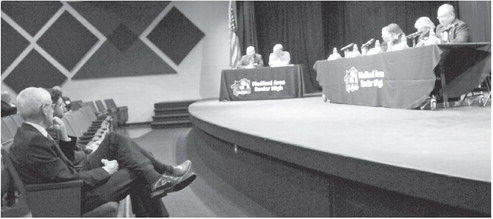School forum invites exchange of ideas


Gov. Tony Evers makes surprise visit to school legislative forum
Gov. Tony Evers joined more than 80 school officials and administrators from aro...


Gov. Tony Evers makes surprise visit to school legislative forum
Gov. Tony Evers joined more than 80 school officials and administrators from aro...